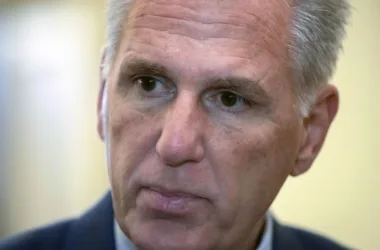In California, Commerce Secretary Gina Raimondo has urged the U.S. government to allocate more funding to prevent the export of sensitive artificial intelligence microchip technology to China. She emphasized the need to counter Beijing’s efforts to bypass the expanded export controls put in place by Washington.
Ms. Raimondo addressed the Reagan National Defense Forum, highlighting the underfunding of the Bureau of Industry and Security, which is responsible for imposing export restrictions on the most sensitive technologies from private industry.
She expressed concerns about the bureau’s budget, stating that it has remained the same for the past decade despite the growing challenges in controlling artificial intelligence and semiconductors.
Ms. Raimondo echoed the bipartisan calls from members of Congress for increased efforts in controlling the export of artificial intelligence and semiconductor technologies. She emphasized the need for adequate funding to protect America’s interests.
The discussion at the Reagan forum also underscored the intense competition between the U.S. and China in the field of artificial intelligence, particularly in the context of military applications.
Rep. Mike Gallagher highlighted China’s aggressive pursuit of AI to enhance its military capabilities and surveillance capabilities. Similarly, Adm. John Aquilino emphasized the urgency of the AI race and its implications for U.S.-China military tensions in the Indo-Pacific region. He emphasized the importance of integrating AI into U.S. defense and deterrence strategies.
Adm. Aquilino stressed the significance of AI in achieving decision superiority for the U.S. military in its strategic competition with China. He emphasized the potential of AI to enhance the tactical decision-making process and maintain an advantage over adversaries.
Analysts highlighted China’s ambition to dominate the field of AI technology by the middle of the century, emphasizing the critical role of advanced microchips or semiconductors in this endeavor. The concern over China’s theft of advanced chip designs has prompted the Biden administration to impose export controls on sensitive American tech sector exports to China.
Challenges for the Commerce Department
Ms. Raimondo highlighted the central role of the Bureau of Industry and Security in implementing export controls and the innovative approaches taken by the bureau despite funding challenges. She pointed out the measures taken to deny China access to cutting-edge semiconductor technology.
She emphasized the need to prioritize enforcement and allocate resources to ensure effective export controls. Ms. Raimondo also stressed the importance of collaboration with U.S. allies, such as the Netherlands, Germany, South Korea, Japan, and Taiwan, to limit Chinese advancements in AI.
However, she acknowledged the complexity of balancing export controls to prevent technology transfer to China without impeding the innovation and revenue generation of U.S. companies. She emphasized the need for a strategic approach to address these challenges and maintain a reciprocal trade arrangement with China.
The recent meeting between President Biden and Chinese President Xi Jinping also touched on the risks associated with advanced AI systems and the importance of improving AI safety through bilateral channels. Ms. Raimondo emphasized the need for open communication with China and underscored the importance of addressing national security threats effectively.
She maintained that open communication should not be misconstrued as a sign of weakness, emphasizing the need for a vigilant approach to addressing the significant threats posed by the AI race and the potential risks to national security.









